Last Updated on March 7, 2024 by Archie Biggs
Mastering Credit Card Sign-Up Bonuses: The Comprehensive Guide
This guide will be your ultimate resource for navigating the enticing yet intricate world of credit card sign-up bonuses. It was designed to serve as a meticulously compiled guide, breaking down complex financial terminologies, industry jargon, and legalese to bring you a simple, straightforward understanding of sign-up bonuses, their workings, benefits, and potential pitfalls.
In the era of consumerism and globalization, credit cards have emerged as a trusted financial ally. And one of the significant perks that credit cards offer is the sign-up bonus—a lucrative incentive designed to entice potential customers. This guide delves into the heart of these bonuses, shedding light on what they are and how they work, explaining the sophisticated economic models behind these seemingly straightforward reward systems.
Like any other financial decision, choosing a credit card with a sign-up bonus has its advantages and disadvantages. We weigh both sides of the coin, enabling you to make an informed decision best suited to your needs and financial health. From exploring various types of bonuses to assisting you in picking the perfect sign-up bonus card, this guide offers a panoramic view of the entire spectrum.
We will also delve into the specifics of who should and should not consider these sign-up bonuses and why. This will enable you to assess whether this financial instrument aligns with your lifestyle and monetary goals or not. We will also equip you with strategies to maximize your bonuses, discern purchases that don’t contribute to these bonuses, and avoid common mistakes.
Beyond the well-known facts, we will journey into the lesser-known aspects and hidden corners of sign-up bonuses, demystifying the complex web of terms and conditions that often go unnoticed but play a crucial role in shaping your bonus experience. We will further delve into strategies to meet the spend requirements, managing multiple bonus credit cards, and sustaining rewards beyond the initial bonus. As we move towards the future, we will also provide a glimpse into the future of credit card sign-up bonuses, arming you with the knowledge to adapt and thrive in changing scenarios.
Unmasking the Credit Card Sign-up Bonus
The world of credit cards can be daunting for the uninitiated, with its slew of perks, rewards, and offers. One of these enticing aspects is the sign-up bonus, an initial reward provided by credit card companies to new users. It’s a calculated strategy to entice potential customers and outshine competitors.
A credit card sign-up bonus, in essence, is a reward that a cardholder receives after meeting specific requirements, typically within a designated time frame after opening a new account. These rewards can vary significantly in form and size, ranging from cash back, miles, points, or even statement credits. However, these enticing rewards aren’t doled out without stipulations. The ‘catch’ is often a spending requirement that the cardholder must meet within a specified period, typically three months.
Understanding these bonuses is the key to leveraging them to your advantage. The credit card market is laden with numerous options, each with its distinctive set of rewards, requirements, and potential pitfalls. An informed decision can maximize your benefits while minimizing potential risks.
The Dual Edge: Pros and Cons of Sign-up Bonuses
Sign-up bonuses, while attractive, carry both pros and cons that potential cardholders need to consider. On the positive side, sign-up bonuses offer an immediate reward. Depending on the card and the bonus, you could earn hundreds of dollars in cash back or points, or thousands of miles for travel. This immediate payoff can be a great way to offset an upcoming expense or fund a trip.
However, on the downside, the spending requirement might encourage unnecessary or impulsive purchases to reach the bonus threshold. A cardholder must ensure they don’t fall into this trap of overspending, negating any rewards earned with unnecessary debt. The temptation of earning a large bonus may also make potential customers overlook the card’s other features, such as the interest rate, annual fees, or the value of the card’s ongoing rewards program.
The Panorama of Sign-up Bonuses: Understanding Different Types
Sign-up bonuses can take several forms. Understanding these different types is crucial to maximizing your rewards. Here are a few common types of sign-up bonuses:
- Cash Back: Cash back bonuses give cardholders a percentage of their purchases back as cash rewards. They’re straightforward and easy to understand.
- Points: Some credit cards offer points for every dollar spent. These points can then be redeemed for travel, merchandise, gift cards, or sometimes even cash.
- Miles: Travel credit cards often offer miles as a sign-up bonus. These miles can be redeemed for flights, hotel stays, or other travel-related expenses.
- Statement Credit: Some cards offer a statement credit as a sign-up bonus. This credit is essentially a discount on your credit card bill.
Each type of sign-up bonus has its own set of pros and cons, and the best one for you will depend on your spending habits, lifestyle, and financial goals. Understanding these differences can help you choose the card that will provide the most value for your individual circumstances.
The Art of Choosing: Finding Your Perfect Sign-up Bonus Card
Selecting the right credit card with a sign-up bonus requires a comprehensive understanding of your spending patterns, financial goals, and the ability to meet spending thresholds. Prioritize cards that complement your lifestyle. For instance, if you’re a frequent traveler, look for cards offering miles. If you prefer flexibility, a card offering cash back could be a better choice.
Consider your spending capacity. Will you be able to reach the card’s spending requirement to earn the bonus without straining your budget? Remember, the goal isn’t to overspend for the sake of a bonus but to align your regular spending to earn rewards.
Also, consider the long-term usability of the card beyond the initial sign-up bonus. Look at the card’s reward rate, annual fee, and other perks. Does the card offer ongoing rewards that match your spending habits? Choosing a card that continues to benefit you after the initial sign-up bonus will ensure it remains a valuable financial tool.
For Whom the Rewards Beckon: Who Should Opt for Sign-up Bonus Cards
The allure of sign-up bonuses is undeniable. However, not everyone may benefit from them. Sign-up bonuses are ideal for individuals with substantial, predictable expenses that align with the card’s spending requirement. They’re also perfect for those planning a significant purchase or expense.
Frequent travelers can particularly benefit from travel-related sign-up bonuses, using the bonus miles or points to subsidize their trips. Responsible spenders who pay off their credit card bills in full every month can also reap the rewards without falling into the trap of accruing interest.
Treading With Caution: Who Should Refrain From Sign-up Bonus Cards
While sign-up bonuses can be highly beneficial, they aren’t suitable for everyone. Individuals who struggle with budgeting and have a tendency to overspend might find the spending requirements a risky proposition. Falling into debt to earn a bonus defeats the purpose.
Those who don’t have a plan to pay off the balance in full each month should also think twice. Any interest accrued on balances would likely negate the value of the sign-up bonus. Individuals with an unstable income might struggle to meet the spending requirements consistently.
Leveraging Benefits: Maximizing Your Sign-up Bonuses
To maximize your sign-up bonuses, plan your spending strategically. Try to time your credit card application with a large planned purchase or recurring expenses to help meet the spending requirement.
Consider using your credit card for regular purchases, like groceries or gas, to accrue rewards faster. However, ensure you pay off the balance in full each month to avoid paying interest.
Keep an eye on bonus categories. Some cards offer higher rewards rates on specific categories. If your card offers extra points on dining out or travel, for instance, plan your spending to take advantage of these bonuses.
The Fine Print: What Purchases Don’t Count Towards Sign-up Bonuses
While sign-up bonuses can be a great perk, not all purchases may count towards the spending threshold. Typically, balance transfers, cash advances, and fees don’t qualify. Certain specific purchases may also be excluded, depending on the card issuer’s terms and conditions.
For instance, purchases made through third-party payment systems might not qualify. Gift card purchases can also sometimes be excluded. Always read the terms and conditions carefully to understand exactly what spending counts towards the bonus.
Deeper Insights: Essential Knowledge about Sign-up Bonuses
To truly maximize the benefits of sign-up bonuses, it’s crucial to dig deeper into the details. Keep in mind that credit card issuers have the right to change the terms and conditions, including sign-up bonuses, at any time. It’s vital to read the fine print, stay updated with any changes, and make sure you understand the commitment you are making.
Remember, the timing of when you apply for the card can also affect your ability to meet the spending requirement. If you apply for the card midway through the month, the first statement cycle could be shorter than a month, and you may have less time to meet your spending requirement.
Also, be aware that sign-up bonuses can have tax implications. In some jurisdictions, these bonuses are considered taxable income. It’s wise to consult a tax professional to understand any potential liabilities.
The Hidden Corners: Lesser-Known Facts about Sign-up Bonuses
Many people are attracted to sign-up bonuses, but they often miss out on lesser-known facts that can affect their ability to earn and redeem these bonuses. For instance, some credit card issuers restrict the ability to earn sign-up bonuses if you’ve previously opened or closed the same card within a certain time frame. This is often referred to as a “one bonus per card per lifetime” policy.
Another fact often overlooked is the potential impact on your credit score. Applying for new credit cards results in hard inquiries on your credit report, which can temporarily lower your credit score.
Lastly, not all points and miles are created equal. Their value can vary widely based on how they’re redeemed. Knowing the best redemption options can greatly increase the value of your sign-up bonus.
Conquering The Spend Requirement: Strategies and Tips
Meeting the spend requirement doesn’t need to involve excessive or unnecessary purchases. Consider your planned, necessary expenses, such as grocery shopping, fuel, utilities, or even insurance premiums. Some individuals also choose to pay their rent or mortgage with their credit card, if possible.
If you’re close to the end of your sign-up bonus period and haven’t met the spend requirement, consider prepaying bills or stocking up on essentials. You can also consider buying gift cards for stores where you shop regularly.
Dodging Pitfalls: Avoiding Common Mistakes with Sign-up Bonuses
While sign-up bonuses can be lucrative, there are common pitfalls to avoid. One of the main ones is spending beyond your means just to earn the bonus. Remember, the purpose of a credit card should be to aid your financial management, not to encourage unnecessary debt.
Don’t ignore the card’s other features. While a hefty sign-up bonus is enticing, remember to consider the card’s regular APR, annual fee, and ongoing rewards structure. A high APR or annual fee can quickly eat into the value of the sign-up bonus.
Another common mistake is failing to read the fine print. Ensure you fully understand the terms and conditions, what purchases qualify towards the bonus, and any potential penalties or fees.
Sustaining Rewards: Beyond the Initial Sign-up Bonus
While sign-up bonuses can provide a significant initial boost, the real value of a credit card often lies in its ongoing rewards program. Once the initial bonus is earned and the novelty wears off, your everyday spending habits and the card’s reward rates will determine whether the card continues to be beneficial.
Look for a card that offers generous rewards in categories where you spend most. Some cards offer high rewards rates on groceries, dining, or gas, while others may offer valuable rewards on travel or entertainment.
Consider cards with flexible redemption options. Cards that allow you to redeem rewards for statement credits, travel, gift cards, or cash back can provide ongoing value.
Remember, rewards are only beneficial if you’re not carrying a balance. Interest charges can quickly negate the value of your rewards. Therefore, it’s crucial to pay off your balance in full each month to truly benefit from your card’s rewards program.
Balancing Act: Managing Multiple Bonus Credit Cards
Managing multiple credit cards can be a beneficial strategy for maximizing sign-up bonuses and rewards. However, it requires careful planning and organization.
Firstly, be mindful of the impact on your credit score. Every time you apply for a new card, the issuer will do a hard inquiry on your credit report, which can lower your score temporarily.
Secondly, having multiple cards means you’ll need to meet multiple spending requirements to earn the bonuses. Ensure your budget can handle this without encouraging unnecessary spending or debt.
Finally, consider the time and effort required to manage multiple cards. Each card will have its own due dates, terms, and conditions. Some people find it helpful to use a spreadsheet or a dedicated app to keep track of their cards and spending.
The Path Ahead: The Future of Credit Card Sign-up Bonuses
The world of credit card sign-up bonuses is always evolving. As competition among credit card issuers continues to heat up, sign-up bonuses are likely to become even more enticing.
However, as regulations change and economic conditions fluctuate, the future could see changes in the way these bonuses are structured or offered. Card issuers may become more innovative, offering bonuses tied to specific types of spending or partnerships with other businesses.
One thing is clear: to make the most of sign-up bonuses in the future, potential cardholders will need to stay informed, adapt to changes, and continue to use credit responsibly. A clear understanding of one’s financial situation and goals will always be crucial in navigating the ever-evolving landscape of credit card sign-up bonuses.
In conclusion
Credit card sign-up bonuses represent a fascinating intersection of consumer behavior and financial strategy. They hold the power to unlock considerable value for cardholders, yet their potential benefits must be carefully weighed against their potential pitfalls.
As we’ve seen, sign-up bonuses can offer significant advantages, especially for individuals with significant, predictable expenses, those who pay off their credit card balances in full every month, and those who are planning a significant purchase or expense. Travel enthusiasts can also benefit from travel-related sign-up bonuses, using the bonus miles or points to subsidize their trips.
However, sign-up bonuses are not a universal fit. Those who struggle with budgeting, have an unstable income, or have a tendency to overspend might find the spending requirements a risky proposition. The pressure to meet spending thresholds should not encourage unhealthy financial behavior. Sign-up bonuses should always align with responsible spending habits and financial stability.
Furthermore, managing sign-up bonuses requires a keen understanding of the credit card industry’s intricacies. From recognizing what purchases count towards sign-up bonuses, navigating the tax implications, understanding the impact on your credit score, to exploiting the best redemption options – effective use of sign-up bonuses is a skill that can be developed with research and experience.
However, the benefits of sign-up bonuses extend beyond their initial appeal. As we’ve discussed, the long-term value of a credit card lies in its ongoing rewards program. Therefore, potential cardholders must look beyond the sign-up bonus and consider the card’s ongoing rewards structure, APR, annual fee, and other features.
Moreover, as consumers become more adept at managing their credit cards, the strategy of maintaining multiple bonus credit cards is gaining popularity. Although this approach can be fruitful, it requires careful planning and organization. The impact on your credit score, meeting multiple spending requirements, and the time and effort required to manage multiple cards are all factors that need careful consideration.
As we look towards the future, we can expect the landscape of credit card sign-up bonuses to evolve further. Changes in regulations, economic conditions, and consumer behaviors will continue to shape the nature and structure of these bonuses. To stay ahead, consumers must adapt to these changes, remain informed, and continue to use credit responsibly.
Ultimately, sign-up bonuses are a tool – a potentially powerful one, but only beneficial when used correctly. A strategic approach, a sound understanding of the credit card industry, and responsible financial habits are the keys to unlocking the full potential of credit card sign-up bonuses. Whether you’re a seasoned cardholder or a first-time applicant, it’s clear that an educated approach to sign-up bonuses can pave the way for financial rewards. By staying informed and proactive, consumers can turn the art of managing sign-up bonuses into a rewarding part of their financial journey.
Frequently Asked Questions About Credit Card Sign-Up Bonuses
What is a Credit Card Sign-Up Bonus?
A credit card sign-up bonus is a reward that you earn by meeting certain requirements within a specified time frame after opening a new credit card account. The bonus might be in the form of cash back, miles, points, or other rewards depending on the specific card. This bonus serves as an incentive for new customers to choose a particular card and then use it regularly.
How Can I Qualify for a Sign-Up Bonus?
To qualify for a sign-up bonus, you typically need to spend a certain amount of money on your card within the first few months of opening the account. This is known as the spending requirement. The specific requirement will vary by card, but it could range from a few hundred to several thousand dollars.
Do Sign-Up Bonuses Have any Tax Implications?
In some cases, sign-up bonuses might be considered taxable income. This is more common with bank account bonuses than with credit card rewards. However, the rules can be complex and vary by location, so it’s best to consult with a tax professional to understand your potential liabilities.
What Should I Do if I Can’t Meet the Spending Requirement?
If you’re not able to meet the spending requirement, you might not be able to earn the sign-up bonus. However, you shouldn’t make unnecessary purchases just to meet the requirement. Doing so could lead to unmanageable debt. If you find you’re regularly unable to meet spending requirements, you may want to consider cards with lower requirements or no sign-up bonuses.
Can I Earn a Sign-Up Bonus More Than Once?
Many credit card issuers have rules limiting the frequency with which you can earn sign-up bonuses. Some issuers have a “one bonus per card per lifetime” policy, meaning that once you’ve earned a sign-up bonus on a specific card, you can’t earn it again. However, other issuers may allow you to earn the bonus again after a certain period, usually several years.
Does Applying for a New Credit Card to Get a Sign-Up Bonus Affect my Credit Score?
Yes, applying for a new credit card will result in a hard inquiry on your credit report, which can temporarily lower your credit score. If you apply for multiple cards in a short period, the impact could be more significant. It’s crucial to apply for new credit sparingly and responsibly to maintain a healthy credit score.
How Can I Maximize the Benefits of Sign-Up Bonuses?
To maximize sign-up bonuses, aim to spend on regular purchases and necessary expenses to meet the spending requirement. Once you earn the bonus, make sure you understand the best redemption options. For instance, some rewards might be more valuable when redeemed for travel or gift cards than for cash back.
Can Sign-Up Bonuses Expire?
Yes, once earned, sign-up bonuses can expire if not used within a certain period. The exact timeframe can vary by card, but it’s typically mentioned in the card’s terms and conditions. Make sure you understand these terms to avoid losing your hard-earned bonuses.
Are There Any Potential Pitfalls With Sign-Up Bonuses?
While sign-up bonuses can be lucrative, there are potential pitfalls to watch out for. One major pitfall is spending beyond your means to earn the bonus. Other potential issues include not understanding the terms and conditions, not paying attention to the card’s other features like APR or annual fee, and not utilizing the best redemption options for your rewards.
How Will Sign-Up Bonuses Evolve in the Future?
The future of credit card sign-up bonuses is likely to see changes as regulations change, economic conditions fluctuate, and consumer behaviors evolve. Card issuers may become more innovative, offering bonuses tied to specific types of spending or partnerships with other businesses. As a consumer, staying informed and adapting to these changes is crucial to maximizing the
What Are the Different Types of Sign-Up Bonuses?
Sign-up bonuses come in various forms depending on the credit card and the issuer. These can include cash back, points, miles, or even specific perks like hotel upgrades or free checked bags on flights. Some credit cards offer a flat-rate bonus, while others might offer a tiered bonus depending on spending in certain categories.
Can a Sign-Up Bonus be Denied?
Yes, a sign-up bonus can be denied. This usually happens when the spending requirement is not met within the specified time frame. Other reasons could include closing the credit card account before earning the bonus or violating the terms and conditions of the credit card agreement.
How Does a Sign-Up Bonus Impact the Value of a Credit Card?
A sign-up bonus can significantly impact the perceived value of a credit card, especially in the first year of card ownership. It’s important to note, however, that a credit card’s long-term value is more often determined by its ongoing rewards structure, fees, and other features.
Can I Get a Sign-Up Bonus With Bad Credit?
While it’s possible to get a credit card with a sign-up bonus if you have bad credit, it’s less likely. Credit card issuers generally reserve the most lucrative sign-up bonuses for cards that require good to excellent credit. However, there are credit cards designed for those with bad or fair credit that offer smaller sign-up bonuses.
Is it Worth Paying an Annual Fee for a Sign-Up Bonus?
Whether it’s worth paying an annual fee for a sign-up bonus depends on the value you expect to get from the card. If the sign-up bonus and the card’s other benefits (like ongoing rewards, travel perks, etc.) outweigh the annual fee, it might be worth it. However, if you’re not likely to use the card often or won’t be able to take advantage of its benefits, the annual fee might not be worth paying.
What Purchases Count Towards the Spending Requirement for a Sign-Up Bonus?
Most regular purchases, like groceries, gas, dining, and online shopping, typically count towards the spending requirement. However, certain types of transactions usually don’t count, such as balance transfers, cash advances, or purchases of cash equivalents like gift cards or prepaid cards. It’s important to read the terms and conditions to understand what purchases qualify.
Can I Lose a Sign-Up Bonus After I’ve Earned It?
Yes, it is possible to lose a sign-up bonus after you’ve earned it. This could happen if you close your account or return purchases that were part of the spending requirement. Some card issuers may also revoke a sign-up bonus if they find that you’ve violated the terms and conditions of the card.
Are Business Credit Cards Eligible for Sign-Up Bonuses?
Yes, many business credit cards offer sign-up bonuses. These can be a great way for businesses to earn rewards for their spending. However, the rules and requirements for business credit card sign-up bonuses might differ from personal credit cards, so it’s important to read the terms and conditions carefully.
How Long Does it Take to Receive a Sign-Up Bonus?
The timeline for receiving a sign-up bonus can vary. Generally, once you meet the spending requirement, the bonus should be awarded within a few weeks. However, some issuers may not award the bonus until after the billing period in which you met the requirement ends. Check with the credit card issuer for specifics.
The Smart Buyer’s Guide: Best Credit Cards with Significant Signup Bonuses
Capital One SavorOne Cash Rewards Credit Card
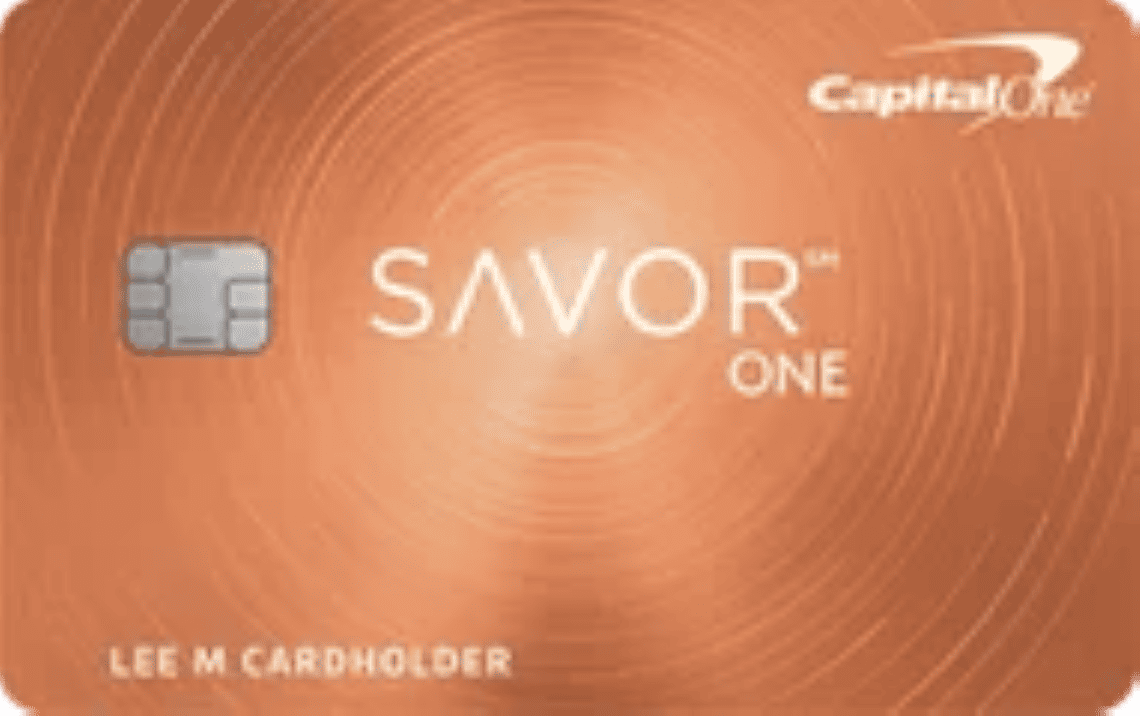
Earn 8% cash back on Capital One Entertainment purchases
Earn unlimited 5% cash back on hotels and rental cars booked through Capital One Travel, where you'll get Capital One's best prices on thousands of trip options. Terms apply
Earn unlimited 3% cash back on dining, entertainment, popular streaming services and at grocery stores (excluding superstores like Walmart® and Target®
Earn 1% on all other purchases.
Intro offer - Earn a one-time $200 cash bonus after you spend $500 on purchases within the first 3 months from account opening
Annual fee - $0
Regular APR - 19.99% - 29.99% variable
Credit Needed - Good, Excellent
Capital One Venture X Rewards Credit Card

5X miles on flights booked through Capital One Travel.
Earn unlimited 2X miles on all other purchases
Intro offer - 75,000 miles
Annual fee - $395 Regular APR - 21.74% - 28.74% variable Credit Needed - Excellent
The Platinum Card® from American Express
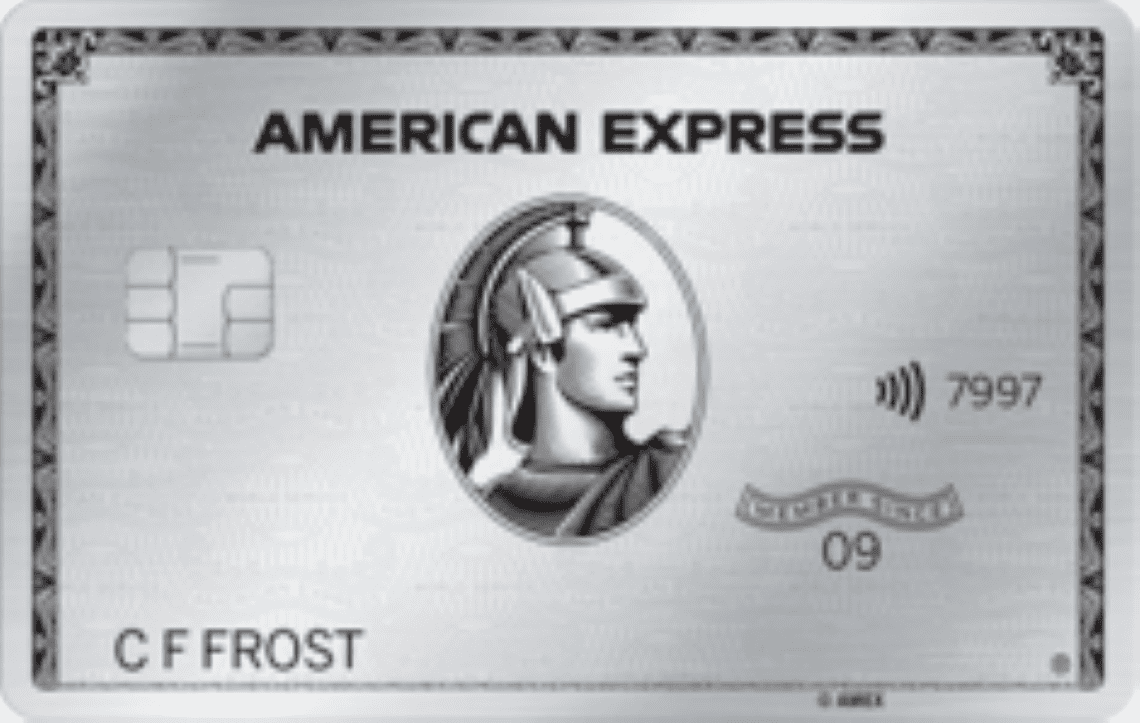
Earn 5X Membership Rewards® Points on prepaid hotels booked with American Express Travel.
Intro offer - Earn 80,000 Membership Rewards® Points after you spend $8,000 on purchases on the Card in your first 6 months of Card Membership.
Annual fee - $695
Regular APR - Pay Over Time APR Credit Needed - Good, Excellent
Chase Sapphire Preferred® Card

3x on dining.
2x on all other travel purchases, plus more.
Intro offer - Earn 60,000 bonus points after you spend $4,000 on purchases in the first 3 months from account opening. That's $750 when you redeem through Chase Ultimate Rewards®
Annual fee $95
Regular APR 21.49% - 28.49% variable APR
Credit Needed - Good, Excellent
Blue Cash Preferred® Card from American Express
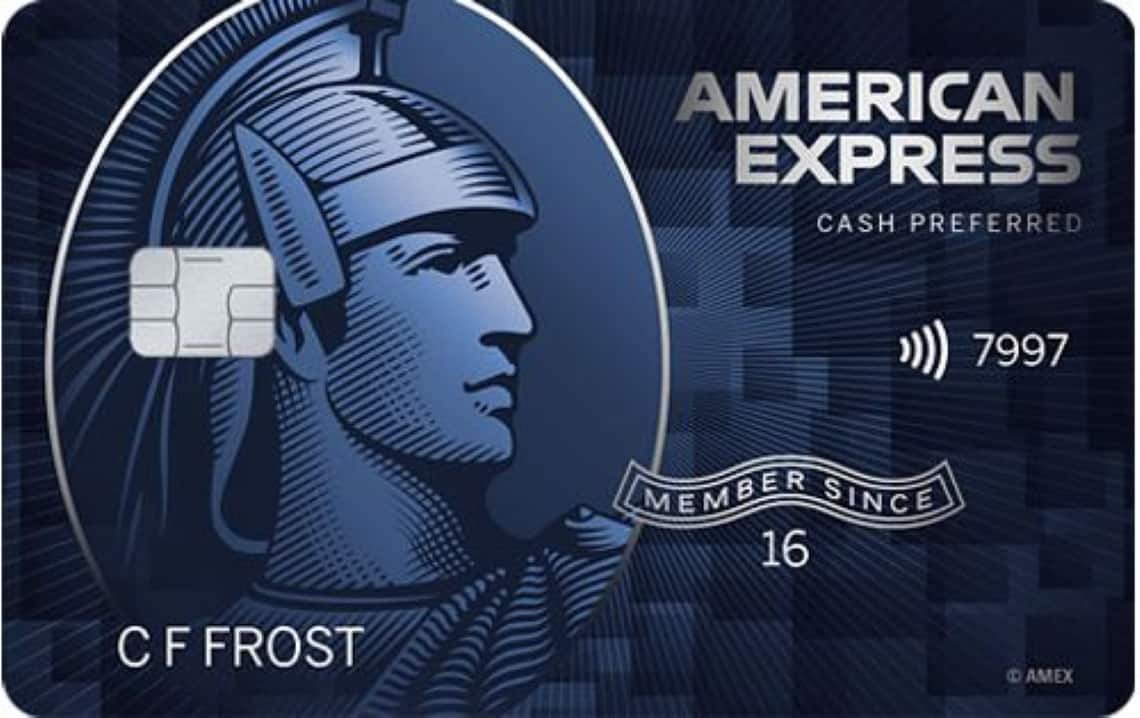
6% Cash Back on select U.S. streaming subscriptions.
3% Cash Back on transit including taxis/rideshare, parking, tolls, trains, buses and more.
3% Cash Back at U.S. gas stations
1% Cash Back on other purchases
Intro offer - Earn a $250 statement credit after you spend $3,000 in purchases on your new Card within the first 6 months.
Annual fee - $0 intro annual fee for the first year, then $95. Regular APR - 19.24% - 29.99% variable Credit Needed - Good, Excellent
Capital One Quicksilver Cash Rewards Credit Card
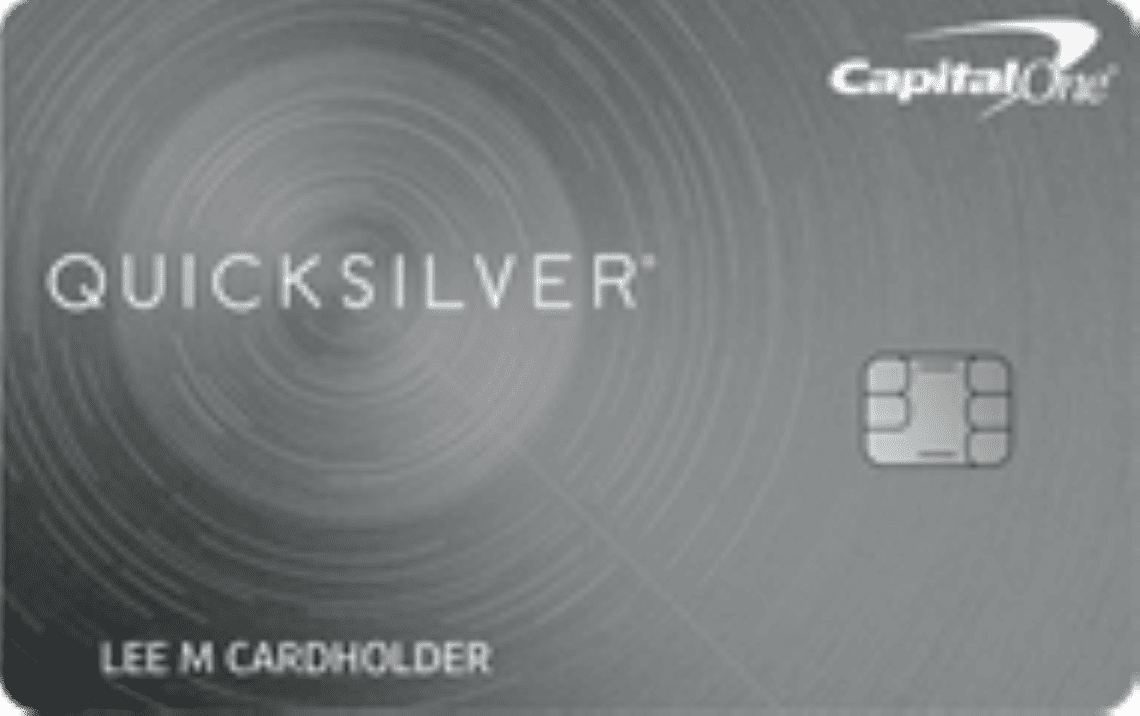
Earn unlimited 1.5% cash back on every purchase, every day
Info Offer - Earn a one-time $200 cash bonus after you spend $500 on purchases within 3 months from account opening
Annual fee - $0
Regular APR - 19.99% - 29.99% (Variable)
Credit Needed- Good, Excellent
Wells Fargo Active Cash® Card
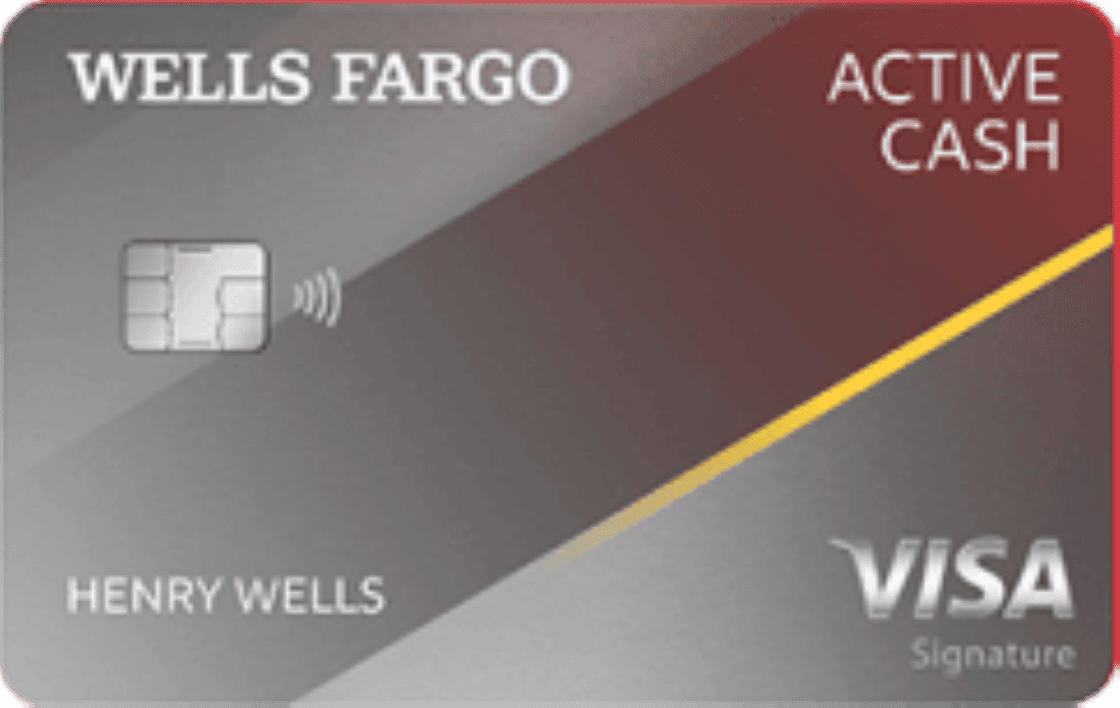
Intro Offer - Earn a $200 cash rewards bonus after spending $500 in purchases in the first 3 months
Annual fee - $0
Regular APR - 20.24%, 25.24%, or 29.99% variable APR
Credit Needed - Good, Excellent
Capital One Venture Rewards Credit Card

Earn unlimited 2X miles on every purchase, every day.
Intro Offer - New Venture cardholders can earn 75,000 miles once they spend $4,000 on purchases within 3 months from account opening
Annual fee - $95
Regular APR - 21.24% - 29.24% (Variable)
Credit Needed - Good, Excellent
Hilton Honors American Express Card
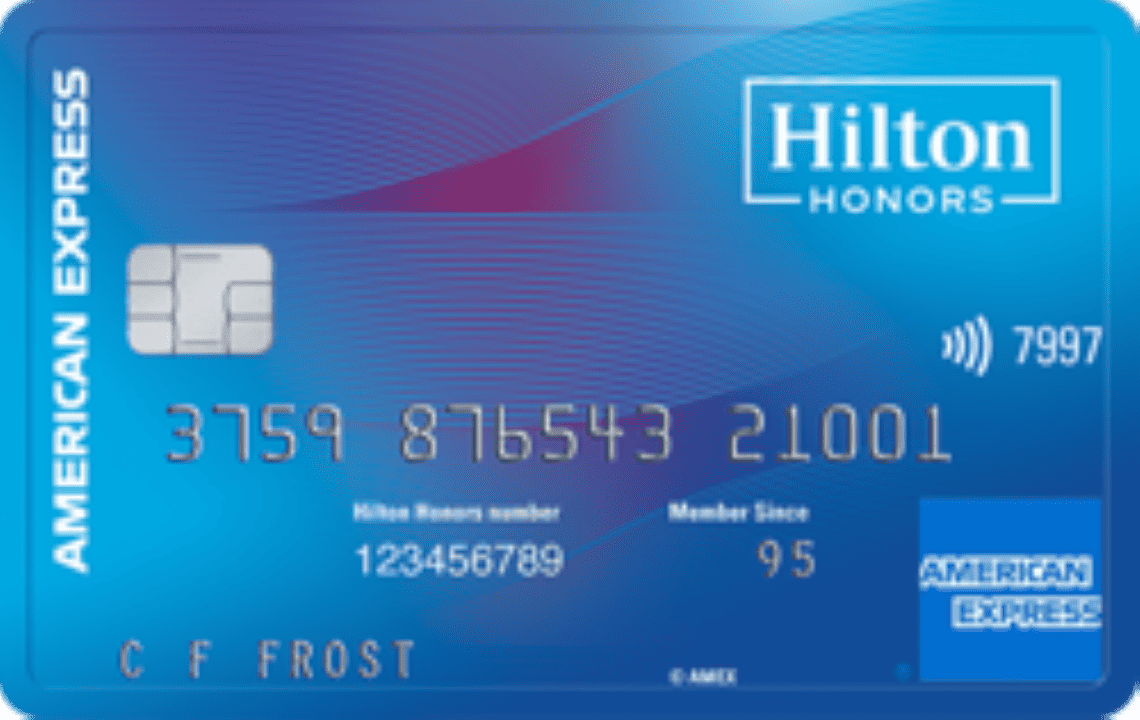
Earn 5X Hilton Honors Bonus Points for each dollar of eligible purchases on dining at U.S. restaurants, including takeout and delivery.
3X Bonus Points on all other eligible purchases
Earn 5X Hilton Honors Bonus Points for each dollar of eligible purchases on groceries at U.S. supermarkets.
Intro Offer - Earn 100,000 Hilton Honors Bonus Points after you spend $2,000 in purchases on the Card within your first 3 months of Card Membership
Annual fee - $0
Regular APR - 20.49%-29.49% Variable
Credit Needed - Good, Excellent
Citi® Double Cash Card
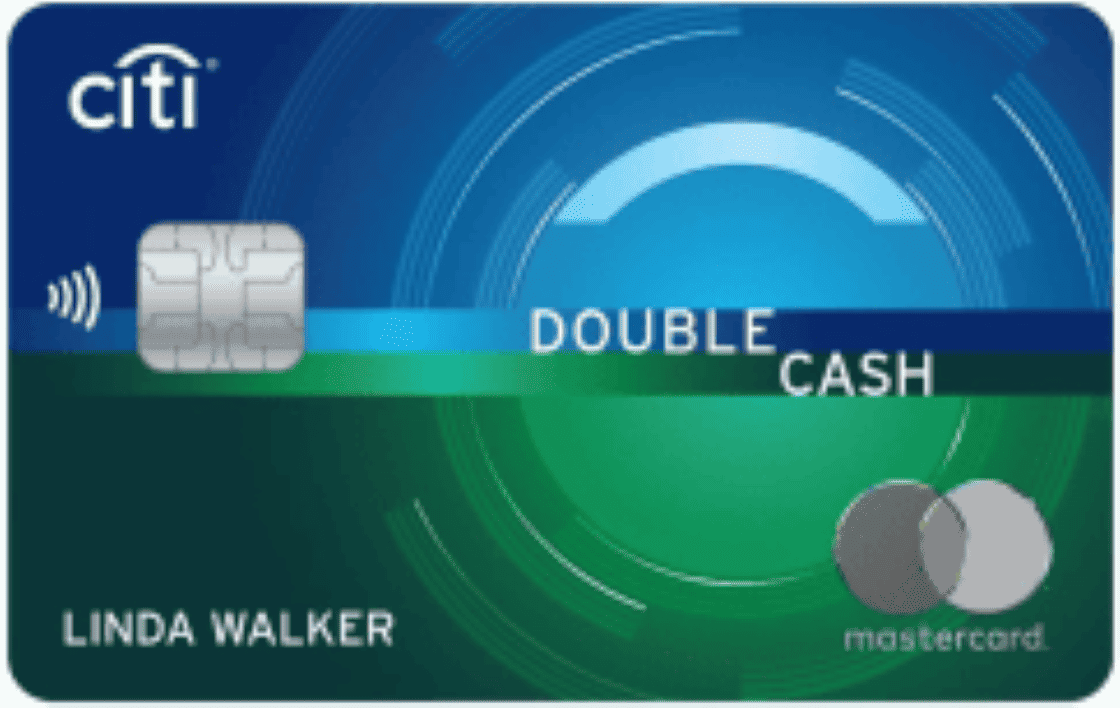
Intro Offer - 0% intro APR on balance transfers for 18 months
Annual fee - $0
Regular APR - 19.24% - 29.24% (Variable)
Credit Needed - Good, Excellent
Citi Custom Cash℠ Card
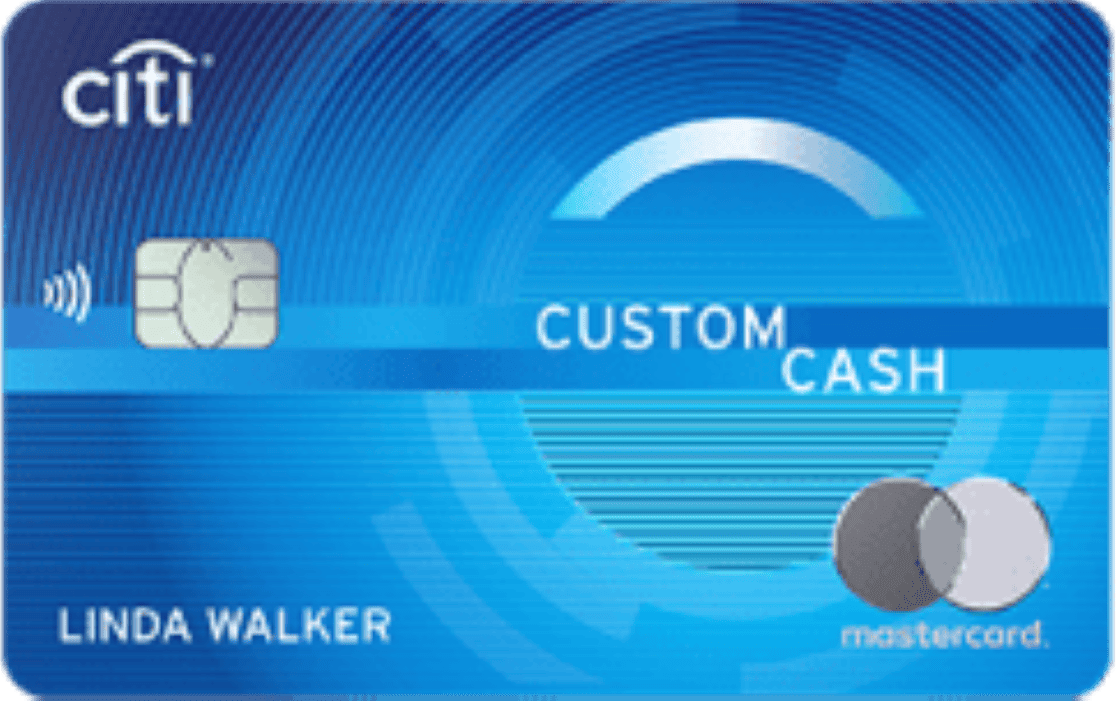
Earn unlimited 1% cash back on all other purchases.
Intro Offer - Earn $200 cash back after you spend $1,500 on purchases in the first 6 months of account opening. This bonus offer will be fulfilled as 20,000 ThankYou® Points, which can be redeemed for $200 cash back
Get 0% Intro APR for 15 months on purchases and balance transfers
Annual fee - $0
Regular APR - 19.24% - 29.24% (Variable)
Credit Needed - Good, Excellent
Chase Sapphire Reserve®

Earn 5x total points on flights through Chase Ultimate Rewards®.
Earn 3x points on other travel and dining.
Earn 1 point per $1 spent on all other purchases
Intro Offer - Earn 60,000 bonus points after you spend $4,000 on purchases in the first 3 months from account opening. That's $900 toward travel when you redeem through Chase Ultimate Rewards®
Annual fee - $550
Regular APR - 21.49% - 28.49% Variable
Credit Needed - Excellent
Chase Freedom Unlimited®
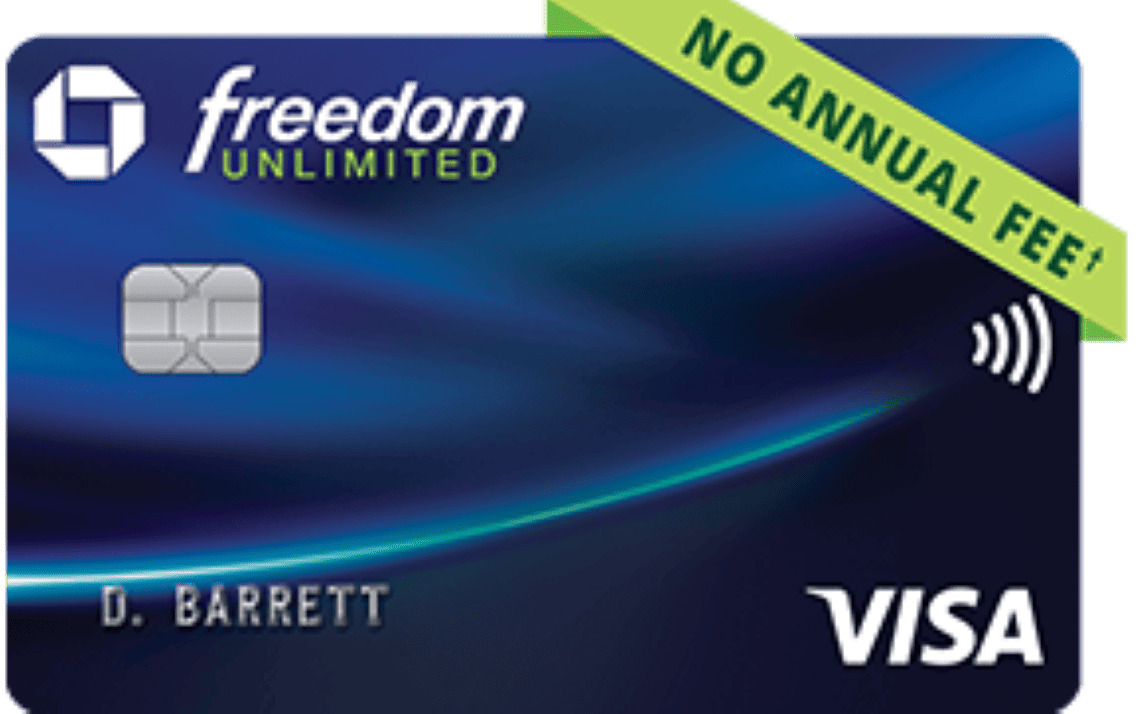
Get 3% Cash Back on Gas station and grocery store purchases (not including Target or Walmart).
Enjoy 5% cash back on travel purchased through Chase Ultimate Rewards®
3% cash back on drugstore purchases and dining at restaurants, including takeout and eligible delivery services
Unlimited 1.5% cash back on all other purchases.
Intro Offer - Earn an additional 1.5% cash back on everything you buy (on up to $12,000 spent in the first year) - worth up to $180 cash back!
0% intro APR for 15 months from account opening on purchases and balance transfers. After the intro period
Annual fee - $0 Regular APR -20.49% - 29.24% Variable
Credit Needed - Good, Excellent





